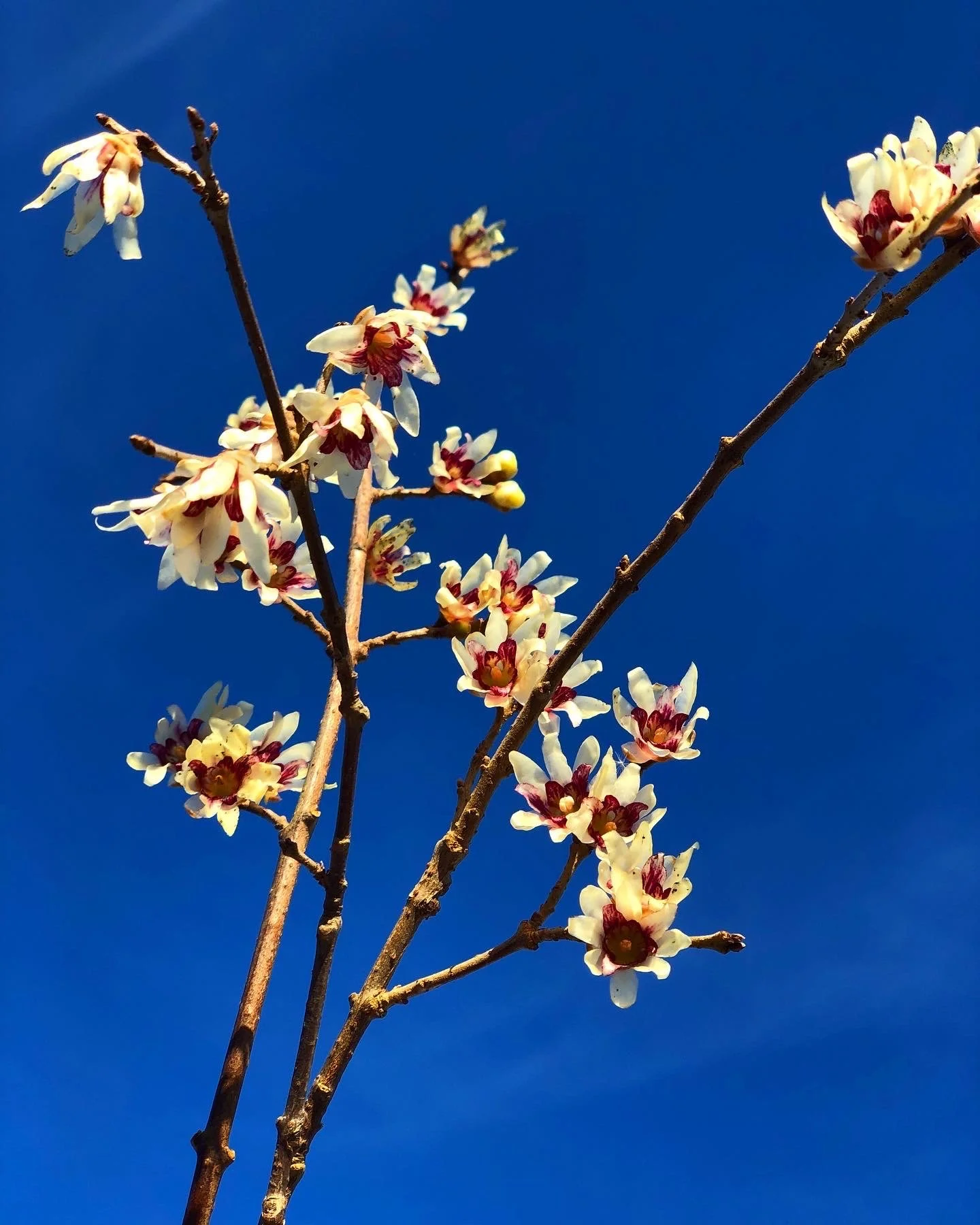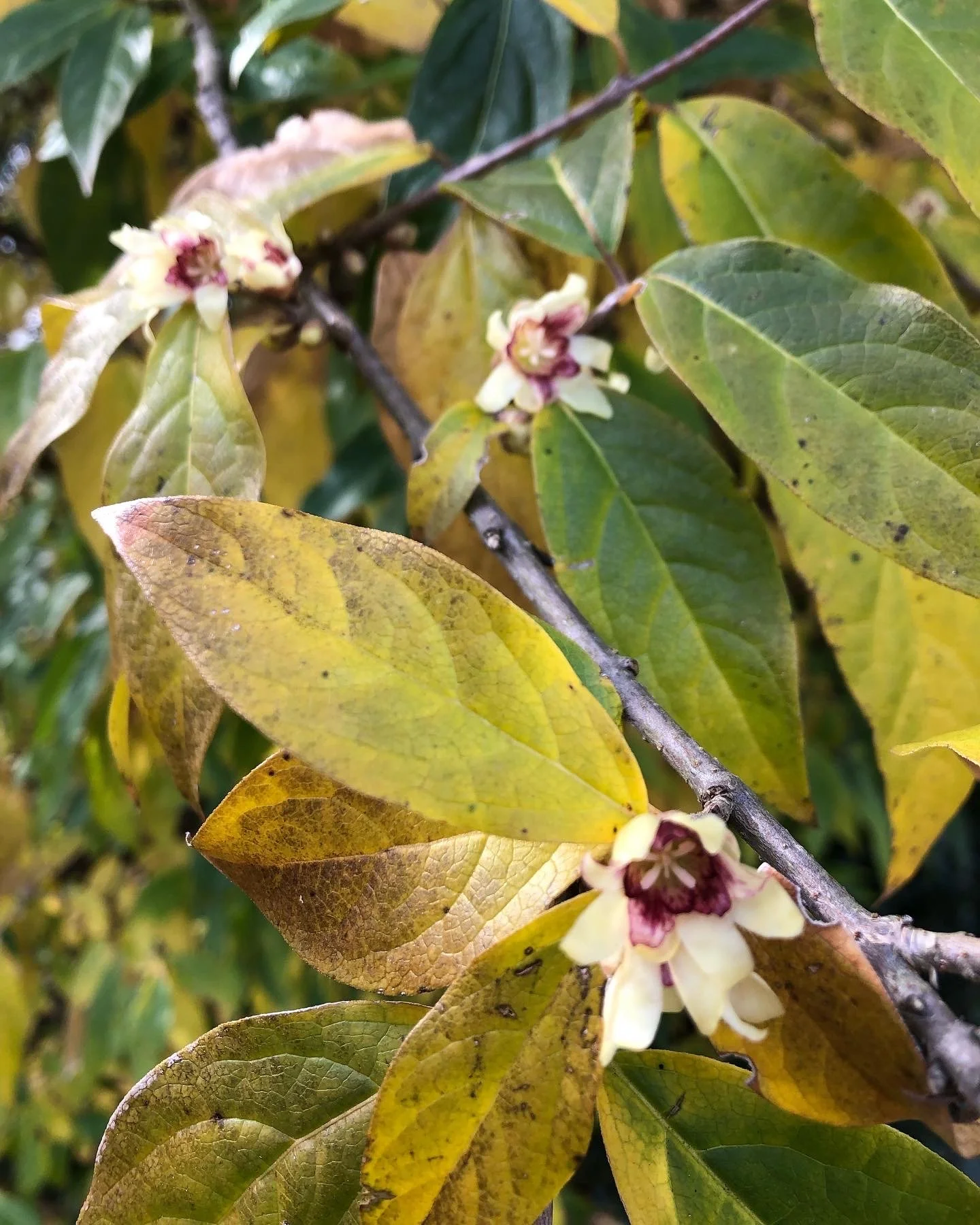“You smell it before you see it” is the best way to describe this Chinese native deciduous shrub. The fragrant blooms will fill the air with a sweet scent that is impossible to miss. Chimonanthus praecox, also known as winter sweet or Japanese allspice, is a deciduous flowering shrub in the Calycanthaceae family.
Hardy to zones 7-9, wintersweet is a must have shrub that can be tucked into a back corner of your landscape, meant to be enjoyed for a few weeks in early winter, while the branches are covered in the blossoms. This is a vigorous plant, reaching 12’+ tall with an open habit. This is not meant to be pruned into a green meatball, so plant it where it can grow to size that wat you can enjoy this as a maintenance free specimen. However, the blooming branches are perfect for cut arrangements to bring in and enjoy, so plan to do any necessary pruning when the plant is in flower.
In late fall, the foliage turns a beautiful, butter yellow color before dropping to the ground. A few short weeks later, the strongly scented, pendent flowers will appear on the bare stems. The blooms range in color from pale yellow to brilliant, dark gold with purple and red pigments. If you are particular about the flower color buy it in bloom!
This plant is notoriously difficult to propagate from cuttings. It seems like it should root but they don’t. Most nurseries grow this from seed, hence the flower color variability. Seed grown plants can take many years to flower, like over a decade. If you come across a named cultivar, such as the gorgeous 'Grandiflorus' and 'Luteus' BUY THEM! They are probably grafted onto seedling rootstock to ensure you get the super showy blooms from the start.
Wintersweet is a very low maintenance plant, once established, which means after 6-9 months in the ground you won’t need to water it, unless we are in a severe drought. Site in more sun that shade for best flowering, which generally means 6-8 hours of direct light. However, this can be grown along a woodland edge and will bloom even in low light. As for soil prep, like all garden plants, this prefers moist, well-drained soil. My recommendation is to add compost, ground leaves, or other decomposed organic matter to the hole when planting. This will provide the water and nutrient retention needed to get the shrub established.
It is important to note that Chimonanthus is NOT related to actual allspice, Pimenta dioica. DO NOT EAT THIS! The seeds contain a toxic alkaloid called calycanthine, found in several Calycanthus species. The advantage of this is that animals, like deer, tend to stay away! I never say anything is 100% animal proof, but I have never heard of any gardeners complain of their wintersweet being eaten to the ground.






